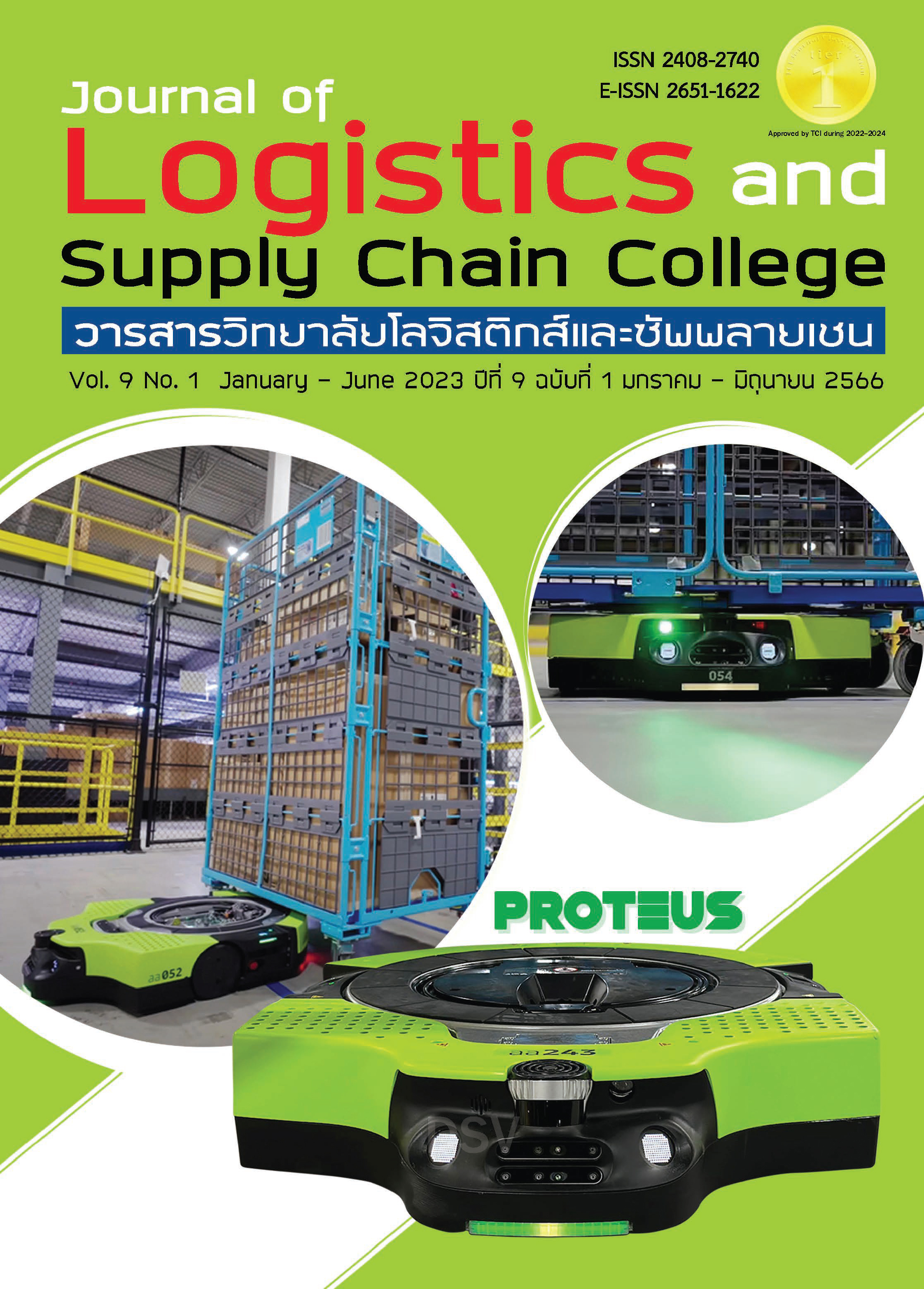The Influences of Community Participation on Tourism Potentials: Case Study of the Tasaba Community of Wangwiset District, Trang Province
Keywords:
Community participation, Tourism potential, The Tasaba communityAbstract
This research aims to 1) study levels of people’s participation in the community, 2) study the tourism potentials of the Tasaba community, and 3) investigate the influences of community participation on tourism potentials of the Tasaba community of Wangwiset District, Trang Province. The data was collected from 400 people living in the Tasaba community using a questionnaire. The quantitative data was analyzed using descriptive statistics, including frequencies, percentages, means, and standard deviations and using inference statistics with stepwise multiple regression analysis. According to research findings, the Tasaba community had a moderate level of community participation and moderate level of tourism potentials. Results from multiple regression analysis revealed that community participation had statistically influenced on tourism potentials. Additionally, these results still confirmed the phenomenon of stakeholder theory in the context of tourism. In terms of recommendations, the community participation is an important factor of tourism potential development which the stakeholders should focus on.
References
ที่ทำการปกครองอำเภอวังวิเศษ จังหวัดตรัง. (ม.ป.ป.). สภาพและข้อมูลพื้นฐาน. ค้นเมื่อ 14 มิถุนายน 2565, จาก: https://wangwiset.dopatrang.go.th/general1.php.
พิมพงา เพ็งนาเรนทร์ (2564). การมีส่วนร่วมของชุมชนเพื่อการพัฒนาศักยภาพการท่องเที่ยวเชิงนิเวศอย่างยั่งยืนของจังหวัดนครปฐม. วารสารสารสนเทศ, 19(2), 95-108.
มติชนออนไลน์. (2565). ‘พิพัฒน์’ วางนโยบายเดินหน้าท่องเที่ยวไทยปี’65 เติบโตทั่วถึง-สมดุลย์-ยั่งยืน ย้ำปั้นรายได้ 1.2 ลลบ. ค้นเมื่อ 22 มิถุนายน 2565, จาก: https://www.matichon.co.th/economy/news_3166366.
วิภาดา เถาธรรมพิทักษ์ และเทิดชาย ช่วยบำรุง. (2562). ศักยภาพของแหล่งท่องเที่ยวมรดกโลกทางวัฒนธรรมในประเทศไทย กรณีศึกษานครประวัติศาสตร์พระนครศรีอยุธยา. วารสารวิชาการนวัตกรรมสื่อสารสังคม, 7(1), 35-45.
เสาวคนธ์ เหลืองทองคำ. (2558). การมีส่วนร่วมของชุมชนในการพัฒนาการท่องเที่ยวแบบยั่งยืน: กรณีศึกษาอำเภอปราณบุรี จังหวัดประจวบคีรีขันธ์. วารสารวิชาการบัณฑิตวิทยาลัยสวนดุสิต, 11(1), 19-29.
อรทัย ก๊กผล. (2552). คู่คิด คู่มือการมีส่วนร่วมของประชาชน สำหรับนักบริหารท้องถิ่น. กรุงเทพฯ: จรัญสนิทวงศ์การพิมพ์.
Bassey, B. E. (2015). Transforming the Nigeria tourism industry through tourism entrepreneurial development. African Journal of Business Management, 9(15), 569-580.
Bricker, K., & Donohoe, H. (2015). Demystifying theories in tourism research. Wallingford, UK: CABI.
Carlson, K. D., & Herdman, A. O. (2012). Understanding the impact of convergent validity on research results. Organizational Research Methods, 15(1), 17-32.
Choibamroong, T. (2009). The role of local government organizations and sustainable tourism development based on the sufficiency economy concept. Publisher of the Cabinet and the Government Gazette. Bangkok: King Prajadhipok's Institute.
Cohen, J. M., & Uphoff, N. T. (1980). Participation's place in rural development: Seeking clarity through specificity. World development, 8(3), 213-235.
Freeman, R. E. (1999). Divergent stakeholder theory. Academy of management review, 24(2), 233-236.
Kebete, Y., & Wondirad, A. (2019). Visitor management and sustainable destination management nexus in Zegie Peninsula, Northern Ethiopia. Journal of Destination Marketing & Management, 13, 83-98.
Kennedy, M. O., Monica, V. V., Maria, A. S. N., & Carlos, A. R. G. (2013). Ecotourism in developing countries: a critical analysis of the promise, the reality and the future. Journal of Emerging Trends in Economics and Management Sciences, 4(5), 481-486.
Laparojkit, S., & Suttipun, M. (2021). The influence of customer trust and loyalty on repurchase intention of domestic tourism: A case study in Thailand during COVID-19 crisis. The Journal of Asian Finance, Economics and Business, 8(5), 961-969.
Liu, J., Qu, H., Huang, D., Chen, G., Yue, X., Zhao, X., & Liang, Z. (2014). The role of social capital in encouraging residents' pro-environmental behaviors in community-based ecotourism. Tourism Management, 41, 190-201.
Mitchell, J., & Coles, C. (2009). Enhancing private sector and community engagement in tourism services in Ethiopia. Project Report for the World Bank.
Pansiri, J. (2013). Collaboration and partnership in tourism: The experience of Botswana. Tourism Planning & Development, 10(1), 64-84.
Saufi, A., O'Brien, D., & Wilkins, H. (2014). Inhibitors to host community participation in sustainable tourism development in developing countries. Journal of sustainable tourism, 22(5), 801-820.
Taherdoost, H. (2016). Validity and reliability of the research instrument; how to test the validation of a questionnaire/survey in a research. International Journal of Academic Research in Management, 5(3), 28-36.
Tosun, C. (1999). Towards a typology of community participation in the tourism development process. Anatolia, 10(2), 113-134.
Wang, C. C., Cater, C., & Low, T. (2016). Political challenges in community-based ecotourism. Journal of sustainable tourism, 24(11), 1555-1568.
Wondirad, A. (2017). Who benefits from the ecotourism sector in Southern Ethiopia? International Journal of Tourism Sciences, 17(4), 276-297.
Wondirad, A., & Ewnetu, B. (2019). Community participation in tourism development as a tool to foster sustainable land and resource use practices in a national park milieu. Land use policy, 88, 104155.
Yamane, T. (1973). Statistics an Introductory Analysis. 3rd Edition, Harper and Row, New York.
Yan, L., Gao, B. W., & Zhang, M. (2017). A mathematical model for tourism potential assessment. Tourism Management, 63, 355-365.



